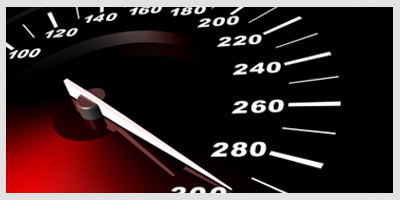Web Page Speed In - Paid Links Out

We've always felt that buying links seemed formidable. Now we know so as Matt Cutts of Google has come right out and said it will not help you, especially with human manual reviews. Again - new unique content, blog posts, forum posts, relationships with industry partners who have quality sites, press releases, articles, etc. are what will help with page rank. Good links that are not paid for as a way to manipulate PR are ok.
Paid links is against Google's terms of service. Not all paid links are wrong - but most will hurt you in the long run as you are gaming Google by trying to show that people link into you - when they don't link to you for your quality content rather your money. This article is not so much about paid links as it is about making sure your web pages load fast.
Google announced last week that site speed will now be a factor in how they rank web pages.
They define site speed as "how quickly a website responds to web requests." This means load speed, from the user clicking the link to when the page is fully loaded. Studies done by Google show that users tend to spend more time on a faster site, meaning they are happier when the site responds quickly.
What does this mean for us? Well, it means that we need to be conscious of just how speed optimized our pages are. From efficient coding to cache settings, there are many factors that affect your page speed. Google has a nice add-on for Firefox called Page Speed, that evaluates your page and offers suggestions for what you can do to maximize your speed. There are plenty of other free resources out there to give you a helping hand when optimizing your site.
Here's a couple of quick tips to get you started:
Reduce HTTP requests (number of items that need to be requested for the page)
Make sure to specify a cache expiration to ensure necessary resources are cached
Optimize your images
Enable compression (gzip being the most common)
Javascript and CSS should be external files
Admittedly, speed is not a major factor in site ranking, no where near as important as page relevance. But if you're anything like us, we know every little bit helps when you're working with SEO. More than that, though, user satisfaction is paramount, and I think Google's mind set is that it doesn't hurt to nudge the web development community in that direction. A faster website will give you happier users, and happier users will make you more profitable. If you get a higher page rank because of it, awesome.





